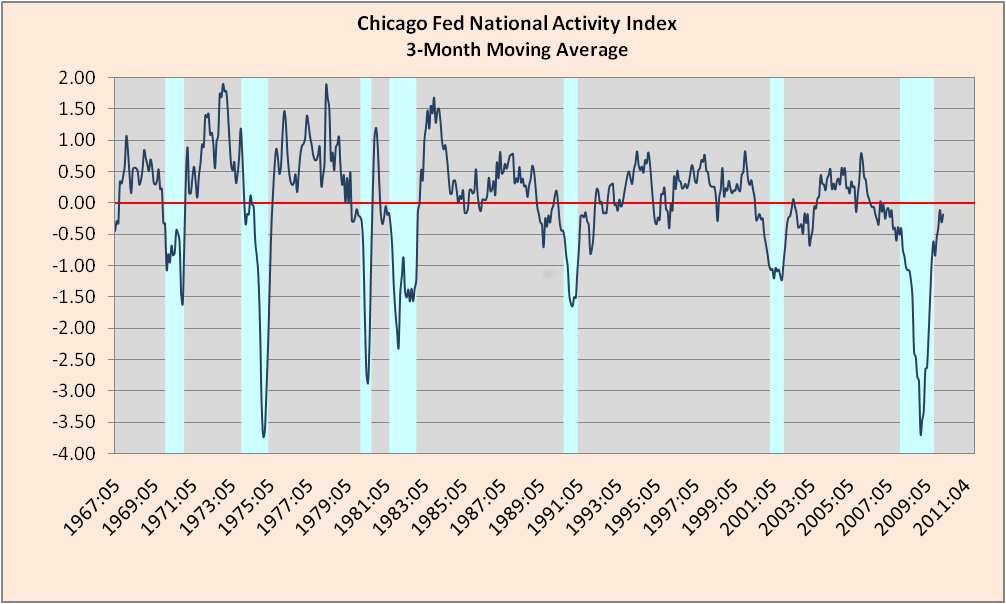Quote:
Originally Posted by August

Important part highlighted.
|
It doesn't change the fact that the NBER uses a (very long) rear view mirror in calling recession beginning and end dates. There is a fundamental difference between saying something is over and saying
when that something ended. That is the crux of the discussion. The majority of NBER committee members will tell you that the recession is over (Feldstein, Frankel) but what they will not do is commit to putting a date on it. Yet.
Regardless, the majority of economic data is showing an end to the recession. No one can ignore that. However, the recovery is another phase altogether. It may take years for a recovery to happen.
But since people seem to like charts, here's one:

This here's the Chicago Fed National Activity Index
Quote:
The CFNAI is a weighted average of 85 existing monthly indicators(pdf) of national economic activity. It is constructed to have an average value of zero and a standard deviation of one. Since economic activity tends toward trend growth rate over time, a positive index reading corresponds to growth above trend and a negative index reading corresponds to growth below trend.
The 85 economic indicators that are included in the CFNAI are drawn from four broad categories of data: production and income; employment, unemployment, and hours; personal consumption and housing; and sales, orders, and inventories. Each of these data series measures some aspect of overall macroeconomic activity. The derived index provides a single, summary measure of a factor common to these national economic data.
|